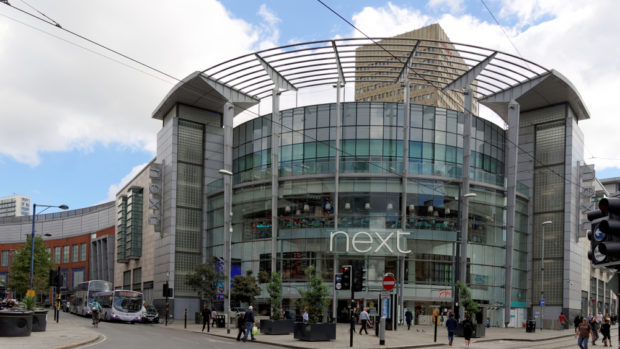Reimagining the role of the store as an online fulfilment channel will become an increasing priority for retailers in their post-pandemic recovery, the latest IDC White Paper, sponsored by Sensormatic Solutions, the leading global retail solutions portfolio of Johnson Controls, has revealed.
Original research of over 250 senior leading European retailers in ‘The Role of Technology in Store Operations Survey’, conducted by IDC for Sensormatic Solutions, showed that the physical store is becoming increasingly central to retail operations. Over three quarters (76 per cent) of retailers say that, due to the pandemic, their bricks-and-mortar stores are now a more important asset in shoppers’ buying journeys, expanding their role as both experiential and fulfilment hubs.
In response to the pandemic, seven in ten (71 per cent) of European retailers have changed their store layout to accommodate capabilities such as click and collect, contactless and self-service technology, while almost half (49 per cent) have started to use part of the store for omnichannel fulfilment. The findings, published in the ‘Transforming the physical store for a new shopping landscape’ report, show Ship From Store ranked as the number one priority for retailers since the start of the pandemic and features in their top four priorities over the next two years.
Filippo Battaini, research manager at IDC Retail Insights, Europe, commented: “The pace of transformation in retail is accelerating as retailers respond to a new shopping landscape. The COVID-19 pandemic has fast-forwarded this process. Retailers are rethinking their processes to enable an effective response to fast-changing expectations from increasingly demanding, technology-savvy and time-crunched consumers. In this context, the role of the physical store is evolving to become more than just a sales channel and to play a bigger role in retailers’ operations.”
With eCommerce volumes booming during 2020 and the accelerated demand for digital sustained in 2021, retailers are increasingly turning to the store to support online order fulfilment, whether that’s through enhanced click and collect services, quick commerce capabilities or dark store retail formats, which are growing in popularity with shoppers; recent research by OneStock shows that 84 per cent of UK consumers want to continue using dark stores post-pandemic.
However original research of over 5,000 European shoppers by Sensormatic showed that whilst demand for click and collect services is growing, retailers’ current capabilities weren’t keeping up with shoppers’ evolving expectations. Just 41 per cent of shoppers using click and collect said their order was fulfilled in a timely manner, while 17 per cent experienced long delays waiting for the store associate went to find their order. Meanwhile over a quarter (27 per cent) had arrived to collect their order in-store only to find it was no longer available, suggesting that speed of fulfilment as well as inventory accuracy and visibility were still hampering click and collect services.
Andy Sumpter, Sensormatic’s retail consultant for EMEA, commented: “We know that consumers are shopping in-store less often, but with more purpose. And that makes confidence in product availability all the more paramount in the eyes of the consumer – they want to be assured that stock will be available when they arrive in-store. This assuredness whilst shopping is why we’re seeing rising demand for click and collect, at the same time that consumers’ expectations around speed and accuracy of fulfilment are growing exponentially. By leveraging insight from shopper traffic trends, retailers can optimise staff scheduling, inventory fulfilment and even loss presentation awareness, allowing them to make the most of sales opportunities born out of new fulfilment services.”








Share